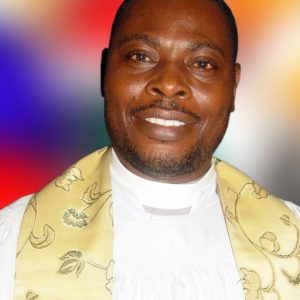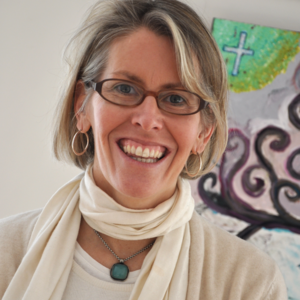[vc_single_image image=”2035″ img_size=”full” alignment=”center”][vc_row el_class=”contener-main”][vc_column][vc_custom_heading text=”FOREWORD” font_container=”tag:h3|text_align:center|color:%230071bd” google_fonts=”font_family:Roboto%20Slab%3A100%2C300%2Cregular%2C700|font_style:400%20regular%3A400%3Anormal”][vc_column_text el_class=”history-section-1-left”]
THE RT. REVEREND ALAN GATES
[/vc_column_text][vc_row_inner content_placement=”middle”][vc_column_inner width=”1/2″][vc_single_image image=”2049″ img_size=”full” alignment=”center” style=”vc_box_rounded”][/vc_column_inner][vc_column_inner width=”1/2″][vc_column_text el_class=”history-section-1-left”]For some years I lived near the shore of Lake Michigan. The town had a lovely beach, accessible by a narrow road with barely enough room for two cars to pass in the opposite direction. Halfway down the bluff, the road took a hairpin turn. A large mirror was mounted on a tree at the point of the turn, so that one could see around the corner, thus avoiding an oncoming car in the midst of that hazardous curve.
When we think of a mirror, we typically think of the mirror over our bathroom sink or the one in the front hall—mirrors into which we gaze to consider what we look like in the moment. Most mirrors show us some reflection of ourselves, reflection of a current reality.
But other mirrors, such as the rear view mirror in our car, show us what lies behind—the territory which we have already traversed. Still others, such as that on the lakeshore road, show us what lies ahead—preview mirrors giving us a glimpse of things yet to be encountered.
The Rev. Dr. Moses Sowale is a faithful priest, a devoted pastor, an accomplished innovator, a loving husband and father, a reflective theologian, and a keen observer of human nature. As his Bishop, I am grateful for his ceaseless determination to bring Christian joy, healing, and wholeness to those in his pastoral charge and to the wider, deeply challenged community around them.
In this book, Fr. Moses invites you to gaze into multiple mirrors: rear view mirrors which look back, inviting reflection upon your life’s blessings and scars; preview mirrors which look ahead, inviting aspirations to what you might become; and mirrors of the present, which invite you to see yourself even now as a beloved child of God, created in the very image of God. It is an invitation, in the author’s words, “to intentionally behold yourself, your story, your challenges, and your entire life as a way of beholding God.”
Fr. Moses weaves the threads of physiology, psychology, and theology, to create a beautiful tapestry of hindsight, foresight, and insight. By this tapestry may you be blessed!
The Rt. Rev. Alan M. Gates
Bishop of Massachusetts[/vc_column_text][/vc_column_inner][/vc_row_inner][vc_custom_heading text=”FOREWORD” font_container=”tag:h3|text_align:center|color:%230071bd” google_fonts=”font_family:Roboto%20Slab%3A100%2C300%2Cregular%2C700|font_style:400%20regular%3A400%3Anormal”][vc_column_text el_class=”history-section-1-left”]
THE VENERABLE DR. JULIUS S. ADEKOYA
[/vc_column_text][vc_column_text el_class=”history-section-1-left” css=”.vc_custom_1593834853884{margin-top: 10px !important;}”]
Two very powerful African imageries are in the background of this masterpiece. The first is an African practice of learning to sing the child’s unique song to consistently celebrate or calm her/him down; and the second is the saying that “Mother is gold but Father is the mirror” (Iya ni Wura, Baba ni Digi).
In the first as Mo ses himself explained—when a woman in a certain African tribe knows she’s pregnant, she goes out into the wilderness with a few friends. Together they pray and meditate until they hear the baby’s unique song. As they attune to it, the women sing it aloud. Then they return to the tribe and teach it to everyone else so that as occasions demand they can sing
ses himself explained—when a woman in a certain African tribe knows she’s pregnant, she goes out into the wilderness with a few friends. Together they pray and meditate until they hear the baby’s unique song. As they attune to it, the women sing it aloud. Then they return to the tribe and teach it to everyone else so that as occasions demand they can sing
it to remind the child who he really is. His take here is that “Those who love you are always ready to sing your song to you. They are not fooled by mistakes you have made or dark images you hold about yourself. They remember your beauty when you feel ugly; your wholeness when you are broken; your innocence when you feel guilty; and your purpose when you are confused”.
In the second imagery, the question uppermost in his heart is that: If fathers are mirrors, where do we turn to behold ourselves when these mirrors are shattered? How can a shattered mirror be restored?
We need “mothers” who will go into the wilderness with their friends to pray and meditate until they hear the unique songs that can calm millions of seemingly hopeless babies wailing in the world today; just as we need fathers who are carriers of the divine image of God. He however lamented that the ancient strategy of destroying men to destroy all (like Pharaoh did to the Israelites male children in Egypt) has not changed. While he applauded the works of women and the feminist movement and the progress that has so far been achieved for the purpose of equality, he observed that we now have a society where women are carrying more burdens than necessary, and we also now have more children than ever who are fatherless, lacks discipline, and are without any sense of direction. He concluded that If the work of deconstructing oppressive patriarchal dominance is not quickly balanced with the redemption of God’s purpose for men, we will all become a society of wounded souls, and our wholeness will only be a fantasy.
An emergence of a Moses without the wilderness experience is nothing but Hollywood fantasy, for in God’s army, “there is nothing like an emergency sanctification.” I have known this Moses well enough to know that what is in this book is from his heart of hearts, having been carefully prepared and blessed with wealth of experiences and revelations given to him long before hand which have now crystalized. We thank God for the courage to sit down and listen carefully to digest them; the courage to stand up and speak or present them in his sermons and teachings over the years—especially when he was with us here in Nigeria; and the courage to now write them down for many to share in the vision and run with it. I think those of us in ‘The Voice’ family are particularly lucky to have a comprehensive answer to numerous questions we have been asking concerning the vision, mission and blueprints of our organization now in this book.
Books are brain children. Like children of one’s flesh and blood, these creative siblings, born by choice or chance are destined to have lives of their own. Their experiences in the world compare favorably to those of any other seminal offering. All of the human emotions are theirs.
Unlike other books which nurse the secret fear that they may someday be permanently shelved and forgotten, however, I believe that the Holy Spirit has brought this writing into being for time and eternity. The experiences and the message are of utmost importance to the body of Christ. It is my prayer that God’s anointing will rest upon this book and minister to every person who reads its contents. I recommend it to both lay and clergy, home and abroad and particularly our students in Theological schools and Universities.
Finally, I congratulate my dear son in Christ for writing this masterpiece and wish him the sufficiency of God’s grace in all his future endeavors in Jesus Christ’ name.
Venerable Dr. Julius S. Adekoya
University of Ibadan Oyo State, Nigeria[/vc_column_text][vc_custom_heading text=”FOREWORD” font_container=”tag:h3|text_align:center|color:%230071bd” google_fonts=”font_family:Roboto%20Slab%3A100%2C300%2Cregular%2C700|font_style:400%20regular%3A400%3Anormal”][vc_column_text el_class=”history-section-1-left”]
THE REVEREND ARRINGTON CHAMBLISS
[/vc_column_text][vc_column_text el_class=”history-section-1-left”] I met the Reverend Moses Sowale ten years ago as we both served in leadership of a faith-rooted justice organization in Massachusetts. When I first met Moses, I knew that he was a special person. His whole being smiled as he greeted me and then I watched him do the same for each person gathered in the room including those who were cranky, reserved or distracted. Moses’ light stirred up the goodness of the whole room.
I met the Reverend Moses Sowale ten years ago as we both served in leadership of a faith-rooted justice organization in Massachusetts. When I first met Moses, I knew that he was a special person. His whole being smiled as he greeted me and then I watched him do the same for each person gathered in the room including those who were cranky, reserved or distracted. Moses’ light stirred up the goodness of the whole room.
As I have gotten to know Moses, a Nigerian, Anglican priest, brother and son of Bishops and spiritual leaders, husband and father, I have gained a deeper understanding of the source of his beautiful light and life. Moses’ soul force shines bright because he takes the inner journey to know himself and to embrace all parts of himself—the glorious and the broken— and all in between. He has embraced the vulnerabilities of losing his father, Pa Joseph Lamidi Sowale, at a very young age and parenting a child with special need. His light is brightened by meeting the blocks and challenges of life rather than avoiding them.
Through the lens of Moses’ wisdom, as I read The Mirror, I asked, how are the most difficult moments of my life reflecting God’s-self? Who are the people who I can show my truest self and share the whole story rather than the parts that are more beautiful or put together?
Moses has been a mirror for me. In 2017, I was struggling internally with self-doubt and a sense of inadequacy in my work. Moses was the preacher in the Lenten series at the Cathedral Church of St. Paul in Boston, MA. As a part of his sermon, he told the story, also shared in the book, about how in certain African cultural traditions, a pregnant mother prepares for the birth of her child, by going into the wilderness with friends, praying and meditating until they hear the unique song of the child she is carrying. The song is taught to the village and sung at all the important life occasions—birth, beginning of school, adulthood initiation, marriage and death. Moses went on to say that this song is even sung for the child or adult when they lose their way, hurt another person or the community. Their song is a reminder of who they are when they have lost their way in confusion or self-doubt. They are not chastised, shamed, blamed and “called out” but instead are “called in” by their song and a community who with love reminds them of who they are. As he spoke these words with love and kindness, I found myself crying. How amazing it would be to have a community sing my song when I questioned myself, or felt like I was not enough? What if I/ we learned to call people into their belovedness rather than point out their mistakes or flaws? Or used a song circle rather than protective, legalistic means and processes to interrogate claims of hurt or restore justice?
I can imagine some reading this might say, this is naive, what about sin and evil? To which I would say I agree and yet focusing on belovedness and goodness in each of us and our communities does not deny the impacts of sin and evil but instead chooses to focus on the belovedness and goodness a bit more. For “what you behold is what you become.”
A beloved friend of mine who I met in racial justice work in the 1990’s would say in moments of conflict and challenge, “ten strokes of love for every stroke of challenge.” I believe Moses is also pointing us to this. In the work of building beloved community and seeking justice, we encounter in ourselves and others our humanity which includes so much brokenness, racism, internalized oppression, greed, fear and also palpable beauty, dignity, and perseverance and love. How can we acknowledge the brokenness and center the belovedness? We know from ageold wisdom that what we place our attention on grows. We water the seeds of our fullest potential and what can bloom is magnificent even from the roughest soil.
I am reminded of Archbishop Desmond Tutu, a man of faith and freedom fighter, who railed against the injustice and inhumanity of South Africa’s apartheid government. Despite having seen some of the nastiest and most intractable racism insists, like Moses, “We are each made for goodness, love and compassion. Our lives are transformed as much as the world is when we live with these truths.”
I am in my second half of life and I know this to be true and I know that this work of seeing and accepting all parts of ourselves is a life-long journey. And it requires the support of others. Moses writes about finding a community of support that could be just one other person who can be your mirror. These mirrors then play the essential role to “remember your beauty when you feel ugly; your wholeness when you are broken; your innocence when you feel guilty; and your purpose when you are confused.
Moses shares, “that there is a proverb in the Yoruba culture that says”, “Atupa kole tana ridi ara e.” It means “A lamp cannot light its own base.” A lamp will need another lamp to light its base. You need another person to help you see your blind spots—a person who could ask the right questions and take the journey with you.” Moses Sowale We each need other lamps “to light our base.”
The books that I love the most are written by authors who practice what they write about and who are honestly grappling with what it means to be human. I can wholeheartedly testify that Moses walks the talk of his book, The Mirror: The Journey to Wholeness: remembering and claiming all of who you are. He does so with his family, congregation, broader community and colleagues.
The Mirror is a gift to communities of faith and the church. It is a book for those young and old who would like to discover God-within. It offers a blueprint for wholeness that if one has the courage to follow will lead to throughout a lifetime to wholeness hidden in us all.
The Mirror also leaves me wondering if Moses’ story could also open a conversation, led by his wisdom, about reconciliation in the church and the world. His is the perspective of a non-western, spiritual leader of color. His heart and his calling are imbued in a community, belovedness and invitation to wholeness instead of isolation, condemnation or interrogation of what is wrong. The church has much to learn from Moses’ story and his vision.
With Gratitude and Love,
The Reverend Arrington Chambliss
Executive Director Episcopal City Mission
[/vc_column_text][vc_row_inner content_placement=”middle”][vc_column_inner width=”1/2″][vc_column_text el_class=”history-section-1-left”]I was moved and impressed by the poignant and passionate account of Fr. Moses’ experience of family, ancestral and present, whose cultural idealism so strongly and positively impacted his life. Children animate the gift of acceptance, “mirrored” in the life of Fr. Moses. He has shown the embodiment of that unconditional acceptance, as well as the strength affirmation he shows toward his peers, past and present. The grace of critical distance makes this possible. Bless you Moses for showing us your heart ~ Rev. Noble F. Scheepers [/vc_column_text][/vc_column_inner][vc_column_inner width=”1/2″][vc_single_image image=”2045″ img_size=”full” alignment=”center” style=”vc_box_rounded”][/vc_column_inner][/vc_row_inner][vc_row_inner content_placement=”middle”][vc_column_inner width=”1/2″][vc_column_text el_class=”history-section-1-left”]The mirror is a book that has taken difficult questions of life and attempted to walk anyone through the journey of tackling these questions, using thought provoking questions, it helps anyone to draw insight while on this journey of life and It uses practical step by step approach to walk this journey with anyone into self-discovery and complete wholeness.
This is a book that will make you love who God has created you to be, it will help you get into alignment with your soul and celebrate where you are on your journey. Rev Sowale has powerfully articulated a great guide that walks side by side with anyone that wants to stop struggling with their lives and get into oneness with it for it to start functioning as God has created it to do.
Adekunle Afolabi[/vc_column_text][/vc_column_inner][vc_column_inner width=”1/2″][vc_single_image image=”2055″ img_size=”full” alignment=”center” style=”vc_box_rounded”][/vc_column_inner][/vc_row_inner][vc_row_inner content_placement=”middle”][vc_column_inner width=”1/2″][vc_column_text el_class=”history-section-1-left”]Jesus tells us that we “are the light of the world.” In The Mirror, Fr. Sowale brings us into a deeper understanding of how we, as lights, enable others to see themselves and how their light helps us to see ourselves. We are like mirrors, reflecting our own light and the light shown by others. We also, reflect in our lives, and see reflected from others, the light of God, the Father of us all. ~ Rev. Philip J. Kuhn [/vc_column_text][/vc_column_inner][vc_column_inner width=”1/2″][vc_single_image image=”2046″ img_size=”full” alignment=”center” style=”vc_box_rounded”][/vc_column_inner][/vc_row_inner][/vc_column][/vc_row][vc_row][vc_column][vc_column_text]
LAUNCHING THE BOOK
All proceeds from launching the Mirror shall be used towards the production of the App – “The Mirror.”
These are the launching options:
- Friends from Nigeria can launch the book by donating to GT Bank; Fingerprint Pastoral Care & Counseling Center, Act. number 0557825199.
- Friends from across the globe can launch the Mirror through this link – Launch The Mirror
- Write a check to the order of “The Voice Inc.” 154 Leach Ave, Brockton, MA 02301
- Cash App Donations – $MosesSowale
The Mirror will be available on Amazon by the end of July 2020.
Thank you![/vc_column_text][/vc_column][/vc_row]
